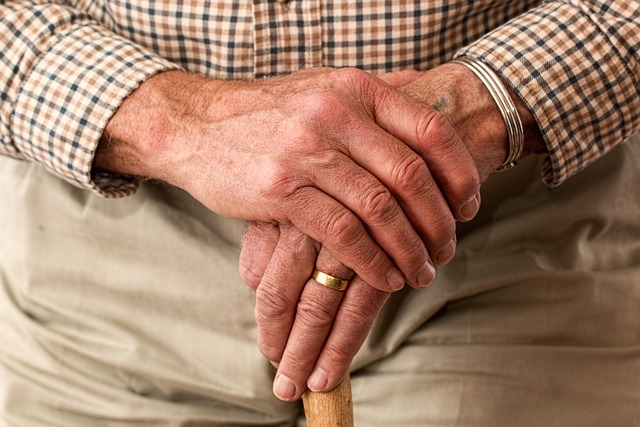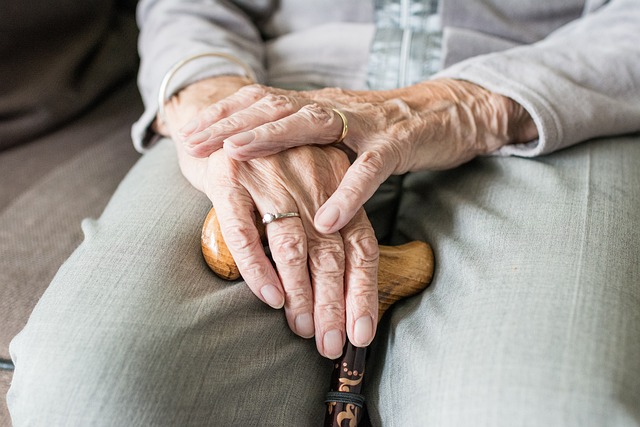For seniors, making informed decisions about end-of-life care is crucial, with options ranging from hospice and palliative care to home healthcare services. Hospice care focuses on comfort and dignity for those with a terminal illness, often in familiar surroundings or specialized facilities. Palliative care aims to improve quality of life by managing pain and symptoms throughout any stage of an illness. Home healthcare services offer personalized support for seniors who wish to remain in their own homes. Advanced directives are vital documents that articulate an individual's healthcare preferences, ensuring their wishes are honored and providing clarity on medical interventions. These directives also help prevent unwanted procedures and foster understanding among family members and healthcare providers. Early discussions about end-of-life care preferences enable seniors to maintain control over their health decisions, align with their social and emotional needs, and promote peace of mind. It's essential for seniors to understand the differences between hospice care and palliative services, as well as the financial implications, to make informed choices that respect their autonomy and lead to a dignified end-of-life experience. Seniors should consult with healthcare providers early to navigate these decisions effectively, considering both personal wishes and health status.
Navigating the complexities of end-of-life care is a critical and deeply personal decision. This article provides guidance for seniors and their families on customizing end-of-life care plans to align with individual preferences and health directives. We explore various end-of-life care options, emphasize the importance of advanced directives, and discuss effective communication strategies to ensure the elderly’s wishes are honored. Additionally, we delve into the nuances of hospice care and palliative services, offering valuable insights for the elderly to make informed decisions about their twilight years. Understanding these options empowers seniors to craft a care plan that respects their autonomy and supports their dignity during this sensitive phase of life.
- Understanding End-of-Life Care Options for Seniors
- The Role of Advanced Directives in Customizing End-of-Life Care Plans for the Elderly
- Communication and Decision-Making: Involving Your Senior Loved Ones in End-of-Life Care Planning
- Navigating Hospice Care and Palliative Services for the Elderly: What Seniors Need to Know
Understanding End-of-Life Care Options for Seniors

As individuals age, making informed decisions about end-of-life care becomes a significant consideration for both seniors and their loved ones. Understanding the array of options available is crucial for tailoring a plan that aligns with personal preferences, health status, and financial circumstances. Hospice care, palliative care, home healthcare services, and assisted living facilities are among the many paths to consider. Hospice care, designed to provide comfort and support during the final stages of an illness, often takes place in a familiar environment or a dedicated hospice facility, ensuring dignity and comfort for the elderly. Palliative care, on the other hand, focuses on managing pain and symptoms throughout all stages of an illness, aiming to enhance the quality of life. For seniors wishing to remain in their own homes, home healthcare services offer personalized care from nursing professionals, therapists, and aides who can assist with daily activities and medical needs. Each option offers distinct benefits, and it is important for seniors and their families to engage in discussions with healthcare providers to determine the most suitable choice based on the senior’s unique health and lifestyle preferences.
The Role of Advanced Directives in Customizing End-of-Life Care Plans for the Elderly

As individuals age, the importance of having a clear and personalized plan for end-of-life care becomes increasingly significant. Advanced directives serve as a critical tool for the elderly to communicate their wishes regarding medical treatment, comfort measures, and the kind of support they desire when they are no longer able to make decisions for themselves. These directives empower seniors by allowing them to specify their preferences in writing, ensuring their autonomy is respected and their end-of-life experiences align with their values and beliefs. The process of creating advanced directives often involves discussions with healthcare providers, family members, and legal professionals, which can also strengthen familial bonds and ensure that all parties are aligned with the elderly individual’s wishes. It is through these meticulously crafted plans that the elderly can maintain control over their health care decisions, providing peace of mind for themselves and their loved ones.
Moreover, advanced directives are not solely for the sick or those in frail health; they are a proactive step for any senior who wishes to retain autonomy over their future care. These documents outline the types of treatments they do or do not wish to receive, such as cardiopulmonary resuscitation (CPR), artificial hydration, and nutrition. They can also designate a healthcare proxy to make decisions on their behalf when they are unable to do so. By having these directives in place, seniors can avoid unnecessary medical interventions that might prolong life in a state of suffering, thus allowing for a dignified and comfortable end-of-life experience. It is through this thoughtful planning that the elderly can ensure their wishes are honored, providing a legacy of autonomy and respect for future generations.
Communication and Decision-Making: Involving Your Senior Loved Ones in End-of-Life Care Planning

As individuals age, engaging in discussions about end-of-life care preferences becomes increasingly important. Senior loved ones often have unique perspectives and values that should guide their care plans. Open communication allows for a clear understanding of their wishes, ensuring their autonomy is respected throughout their golden years. It’s crucial to initiate these conversations early, as it enables seniors to express their desires and fears, leading to more personalized and compassionate care when the time comes. Involving elderly family members in decision-making processes not only aligns with their preferences but also fosters a sense of control over their future healthcare. This collaborative approach can alleviate distress for both seniors and their families by reducing uncertainty and conflict, ultimately promoting peace of mind and dignity at the end of life.
Furthermore, involving seniors in their own care planning is not solely about making decisions regarding medical interventions or hospice care; it’s also about understanding their social and emotional needs. Discussions should extend to the types of environments they prefer, the level of independence they desire, and the kind of support system they wish to have in place. By doing so, seniors are empowered to make informed decisions that reflect their values and wishes, ensuring their end-of-life journey is as comfortable and fulfilling as possible. It’s essential to approach these conversations with sensitivity, patience, and an open heart, respecting the autonomy of elderly individuals while also providing them with the necessary information to make well-informed decisions about their end-of-life care.
Navigating Hospice Care and Palliative Services for the Elderly: What Seniors Need to Know

As seniors contemplate their end-of-life care preferences, understanding the nuances between hospice care and palliative services becomes paramount. Hospice care is a specialized form of care designed for individuals with a terminal illness who are expected to live six months or less. It focuses on providing comfort, addressing pain and symptom management, and offering emotional and spiritual support to both the senior and their loved ones. Palliative services, while overlapping with hospice in terms of care philosophy, is more broadly applicable and can be utilized at any stage of illness. These services aim to improve the quality of life for patients by managing pain and other distressing symptoms, providing coordination of care, and offering support to help seniors maintain their dignity and independence for as long as possible.
Elderly individuals should proactively engage with healthcare providers to explore these options and determine which path aligns with their personal wishes and health status. It is essential for seniors to communicate their preferences early on, ensuring that their end-of-life care plan respects their choices and honors their autonomy. Additionally, understanding the financial aspects, including Medicare coverage and insurance policies, is crucial for navigating these services without undue stress or burden on families. By empowering seniors with knowledge, they can make informed decisions about their end-of-life care, leading to a more peaceful and dignified experience.
In conclusion, customizing end-of-life care plans is a vital decision that allows seniors and their families to navigate the complexities of healthcare options with clarity and confidence. By understanding the diverse care options available, establishing advanced directives tailored to individual preferences, and engaging in open communication, elderly individuals can ensure their end-of-life experiences align with their wishes. It’s crucial for seniors to explore hospice care and palliative services, which offer compassionate support and dignity during this sensitive phase of life. These steps empower seniors to maintain control over their care, ensuring peace of mind for themselves and their loved ones.
